A Theology of the Force – Part 1
At some point in the life of a young Star Wars fan, there comes a moment when you hold out hope that the Force could possibly be real. As you cross sabers with your best friend you push out your hand and you flinch for a millisecond in fearful hope he will carom across the yard. Maybe, just maybe, you can clear the chasm between your deck and retaining wall with an assisting boost from the Jedi’s magical boon. Or it could have been your lazy attempts to get the dang TV remote to fly into your hand so you didn’t have to give up your precious warm spot on the couch.
Whatever motivated you to concentrate really hard and hope for an invisible helper, like Hogwarts’ magic after it, the Force was an admission of the supernatural, the unexplained, and the fantastic. The concept of the Force has been so predominantly embraced in American culture, and around the world, phrases like, “Use the Force, Luke,” and, “May the Force be with you,” are both fan insider language and staples of pop culture phraseology. To acknowledge its ubiquity is to acknowledge the vast influence it has had on the cultural imagination and popular storytelling.
George Lucas, the genius behind Star Wars and the progenitor of the ideas of the Force, traces the origins of the Force to a multitude of spiritual, narrative, and psychological influences. While we could spend reams of pages on those influences, it would be best to get a clear distillation of the Force from the Maker himself:
“The Force evolved out of various developments of character and plot. I wanted a concept of religion based on the premise that there is a God and there is good and evil. I began to distill the essence of all religions into what I thought was a basic idea common to all religions and common to primitive thinking. I wanted to develop something that was nondenominational but still had a kind of religious reality.” George Lucas in The Phantom Menace Movie Scrapbook
Like any smart filmmaker bent on creating something for mass consumption, Lucas created a cosmology that does not hold allegiance to one way of thinking. And it was an idea that American culture was all too eager to latch onto in the bleak and grounded landscape of the 70’s movie scene. Star Wars offered a more hopeful outlook that raised itself above the street level grit of a movie like Taxi Driver and confidently affirmed that there was a God, there is a morality, and that at its core, humans are a spiritual and religious people.
That would have been all well and good, if not for the religious and cultural hijacking the galaxy far, far, away has endured. Like The Matrix and Groundhog Day, two movies that quickly come to mind, Star Wars has been claimed by almost every known religion as its own. A quick search of “Star Wars and [insert religion]” will be guaranteed to find books, audio, or at least a stray article or two. Even fans themselves who have eschewed existing religions have lobbied around the world on multiple occasions to register Jedi as an official world religion. While I don’t think Lucas minds, nor does his bank account, his story has been parsed, quoted, reconfigured, and flipped upside down over 30+ years as an enduring testament to cultural myth and its value as a significantly spiritual narrative.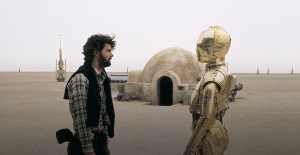
While it is only a story, it has not stopped analysts, pastors, writers, and theologians from weighing in on either the theological significance of Star Wars or the inevitable dangers of a “pop religion” created by a filmmaker to generate revenue. The former has many proponents within the Christian community. Quick searches on Amazon and Google can turn up some pretty interesting results for what has been generated over the years, but generally what you find will be overwhelming positive. Sometimes, it can be a little too optimistic about the connections between the Force and the Christian faith, e.g. equating the Force to be in line with the Holy Spirit. Of course, their erring enthusiasm for ‘the Wars” can be excused by this fellow Star Wars nerd. I am sure, in my fandom, to have earnestly tried too hard to shoehorn my faith into the ethos of the Jedi Knights.
The latter theologians, the ones who see the theology of the Force to be dangerous and misleading, are often missing the point. For example, I greatly admire the theology and work of Al Mohler, president of Southern Baptist Theological Seminary in Louisville, Kentucky. He has done some incredible things at SBTS and within the Southern Baptist Convention, of which I have friends that have gone there and pastor SBC churches. However, he is dubiously known in Star Wars circles for having pitted the Christian faith against the Force in a 2004 article on his website. While acknowledging the great entertainment value of Star Wars, the thesis of his article can be summed up in the following excerpt:
“The mythology of Star Wars is perfectly adapted to the spiritual confusion of postmodern America. ‘Go with the Force’ is about all many citizens can muster as spirituality. When Christianity ceases to be the dominant worldview of a culture, paganism is quick to fill the void.”
I don’t fault Mohler for taking the stance he does. It is brave—I’m sure he didn’t gain an adoring following among Star Wars fans after the article—and carefully supported throughout. As I said before, I do not think that there is a vitriol towards Lucas’ creation, but a misunderstanding of how faith connects to a filmmakers craft and to story. Star Wars is not out to create a new competing religion that easily fits into the cultural pluralism of America. The original trilogy is a work of art and is a thematic treasure trove reflecting the human spiritual condition and grazes in the theological and moral fields of the Western religious experience. It is a thoroughly modern tale of good and evil with a central motif being a more postmodern struggle for power and knowledge.
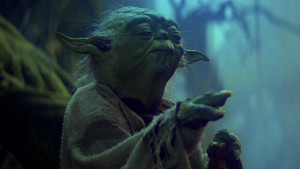 In Part 2 of ‘A Theology of the Force’, we’ll take a look at what the movies themselves say about power, morality, and how they connect to the Christian faith.
In Part 2 of ‘A Theology of the Force’, we’ll take a look at what the movies themselves say about power, morality, and how they connect to the Christian faith.
Check out the other posts in this series as we make the slow march toward December and The Force Awakens:


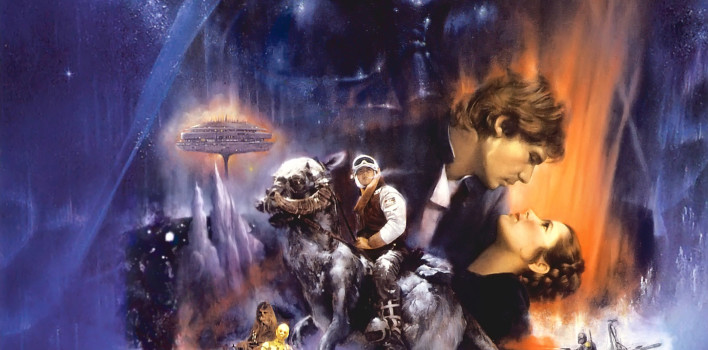
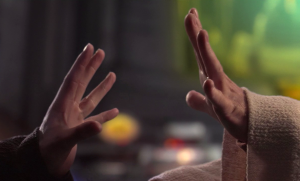
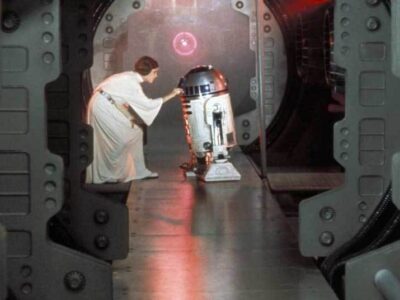
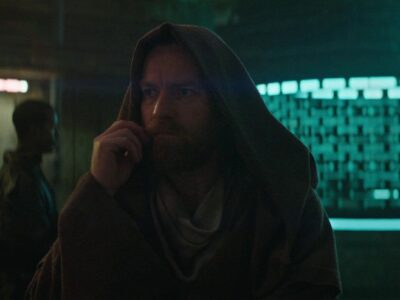
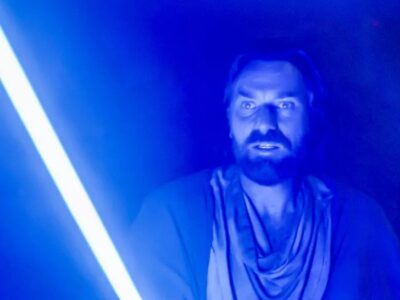


Pingback: A Theology of the Force – Part 2 | Reel World Theology
Pingback: A Theology of the Force – Part 3 | Reel World Theology